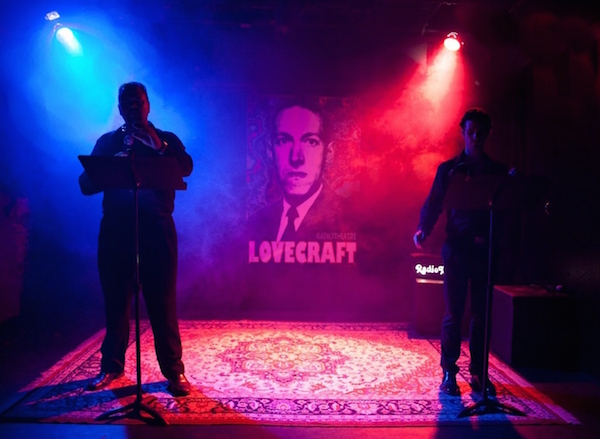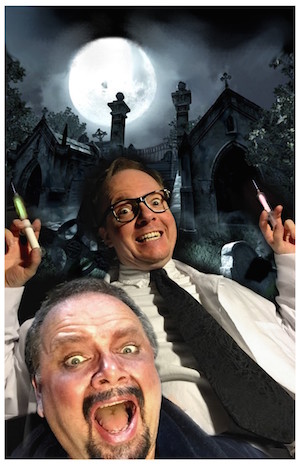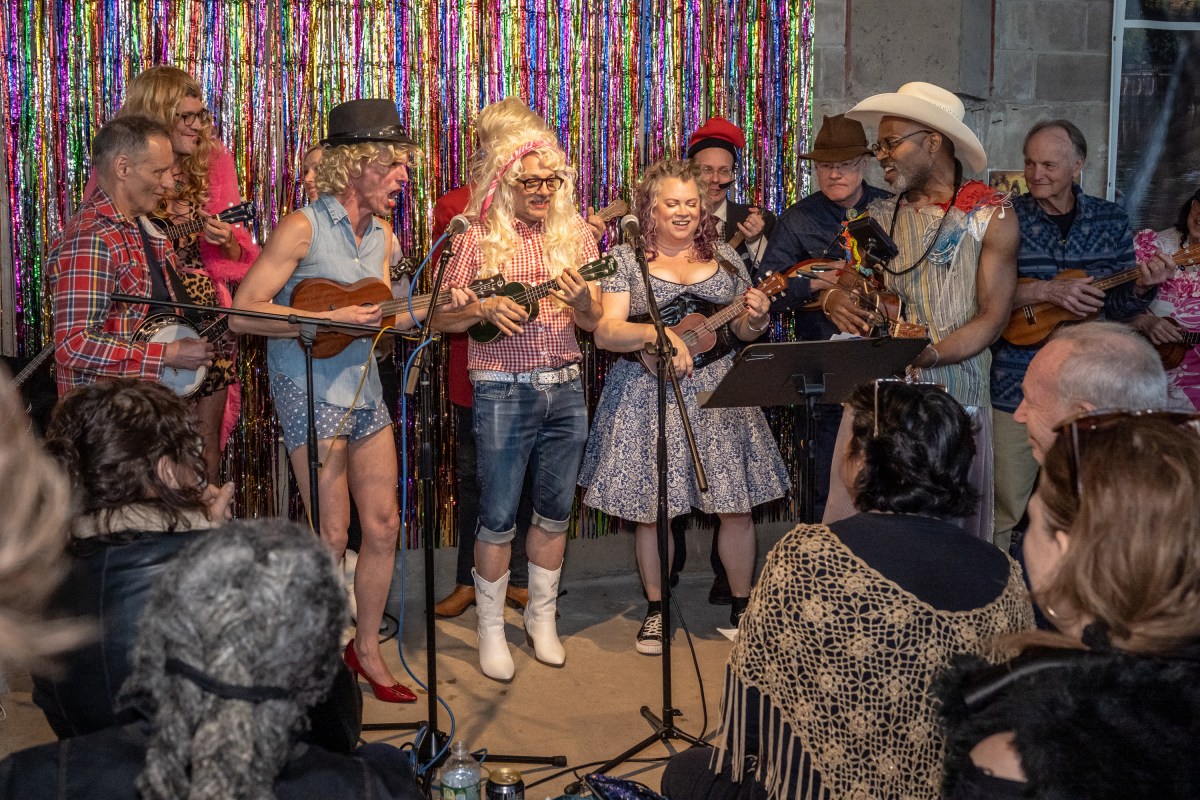
BY CHARLES BATTERSBY | Before modern sci-fi appeared, there was a brief period in which horror, mysticism and science blurred together in fiction. The greatest writer of this chimeric genre was H.P. Lovecraft, a prolific short story writer from the early 20th century.
For the last seven years, Radiotheatre has performed adaptations of Lovecraft’s work live onstage, in the style of a radio drama. They return this month with their Seventh Annual H.P. Lovecraft Festival — whose seven adaptations include some of his most famous stories, like “Reanimator” and “The Call of Cthulhu” — showing how Lovecraft’s singular style holds up in the 21st century.
A recurring theme in Lovecraft’s prose is that alien beings and supernatural creatures would inherently be impossible to describe in any human language. He created his own distinct manner of writing, and often used a set of “Lovecraftian” adjectives to describe the eldritch, unnamable, squamous horrors in his tales.
Dan Bianchi, the Artistic Director of Radiotheatre, talks about the genesis of this unique style. “He had this talent to create another world, another system of beings. He didn’t want to write science fiction with the same kind of robots and creatures that we’re used to seeing. Why can’t they be, if they’re going to be from another world, another dimension, something that we have no description for? Why must it be on humanity’s terms?,” he asks.
Audiences have to use their imaginations when reading Lovecraft’s prose, and this works well with Radiotheatre’s style of production. Bianchi’s performers dress in black, and sit on stages with virtually no sets. The audience has to picture in their mind what the nightmare realms look like in the story of “Hypnos,” or the sea beasts of “The Horror at Martins Beach.”
“I still don’t know if Cthulhu is seven feet tall, or forty stories tall,” Bianchi says of the deliberately vague descriptions in Lovecraft’s works. “We have a whole generation that grew up with $200 million movies every week, so you just sit back, turn your brain off. [The special effects] have done everything for you.”
Lovecraft had limited success in his own lifetime, dying young, unable to support himself on his income as a writer. However, he was a major influence on 20th century horror writers. “People like Stephen King, and Joyce Carol Oates regard Lovecraft as the grandmaster of twentieth century American Horror,” Bianchi explains. “After Edgar Allen Poe comes H.P. Lovecraft, then everybody else after that. People revere his work now.”
Lovecraft is best known for creating the “Cthulhu Mythos,” which concerns humanity’s relationship to god-like alien beings called “The Great Old Ones” who appear in many of his stories — notably, “The Call of Cthulhu.” The mythos itself has been picked up by other authors, filmmakers and video game designers. “Now it’s an industry,” Bianchi says about Cthulhu’s cult status. “I know young people who say, ‘I know that Cthulhu,’ but they don’t know H.P. Lovecraft. The know because they grew up playing the games.”

The same is true for another of Lovecraft’s most infamous creations, “Herbert West-Reannimator.” This serialized short story was an early example of zombie fiction, but modern audiences might know it best from the 1980s movie series which re-imaged Lovecraft’s tale as a dark comedy. “It’s something that you still get people like, ‘That was my favorite movie,’ and they come looking for the movie,” Bianchi laughs. “Even though Lovecraft hated that story. It was a job for hire.”
Fans who never read the original versions of “Reanimator” and “Cthulhu” will be able to see more faithful adaptations of both stories during this year’s festival. “Reanimator” is adapted by Bianchi, and “Cthlulhu” is adapted and performed by David Neilsen.
A couple of other stories in this year’s festival are of particular interest to New Yorkers. “The Horror At Red Hook” and “He” both take place in New York City. Lovecraft lived most of his life in New England, and set many of his stories in creepy New England towns, but during his brief marriage, his wife persuaded him to move to New York City.
“They lived in Red Hook in Brooklyn, and the house is still there. And when he was here in New York, he was miserable,” according to Bianchi. Lovecraft’s wife left him after two years, and he returned to Rhode Island. This short and unhappy exposure to New York and its multitudes of immigrants led him to write tales about ancient horrors brought to the modern world. Bianchi points out, “This is where the argument about Lovecraft comes in: ‘He’s a racist, why are you even doing his work?’ ”
Lovecraft’s race issues are one of the many recurring xenophobic themes in his writing, along with phobias of the ancient and unknown. “You could take into account the time, place and society that he came from. These were old New Englanders, people who came on the Mayflower. To him, they were the New England nobility,” Bianchi says. “When he came to immigrant New York, he thought the masses were filthy and downtrodden. But it was odd that, even though he talked about the ‘swarthy’ immigrants, he married a Jewish woman.
“He even wrote a story called ‘The Outsider,’ and that’s what he envisioned himself as,” Bianchi explains. “He is someone who communicated by writing to lots of other writers, and so they knew of him, and these small magazines kept him going.”
Lovecraft’s influence and creations live on nearly 80 years after his death — and audiences who dare witness a cyclopean, unutterable theatrical event that humanity was not meant to behold can catch the H.P. Lovecraft Festival.
The Seventh Annual H.P. Lovecraft Festival runs Thurs. Oct. 1–Sun. Oct. 11. At the Kraine Theater (85 E. Fourth St. btw. Bowery & Second Ave.). Programs start at 7:30 p.m. Thurs.–Sat. and at 3 p.m. on Sun. Tickets $20, at horsetrade.info. Artist info at radiotheatrenyc.com.

















